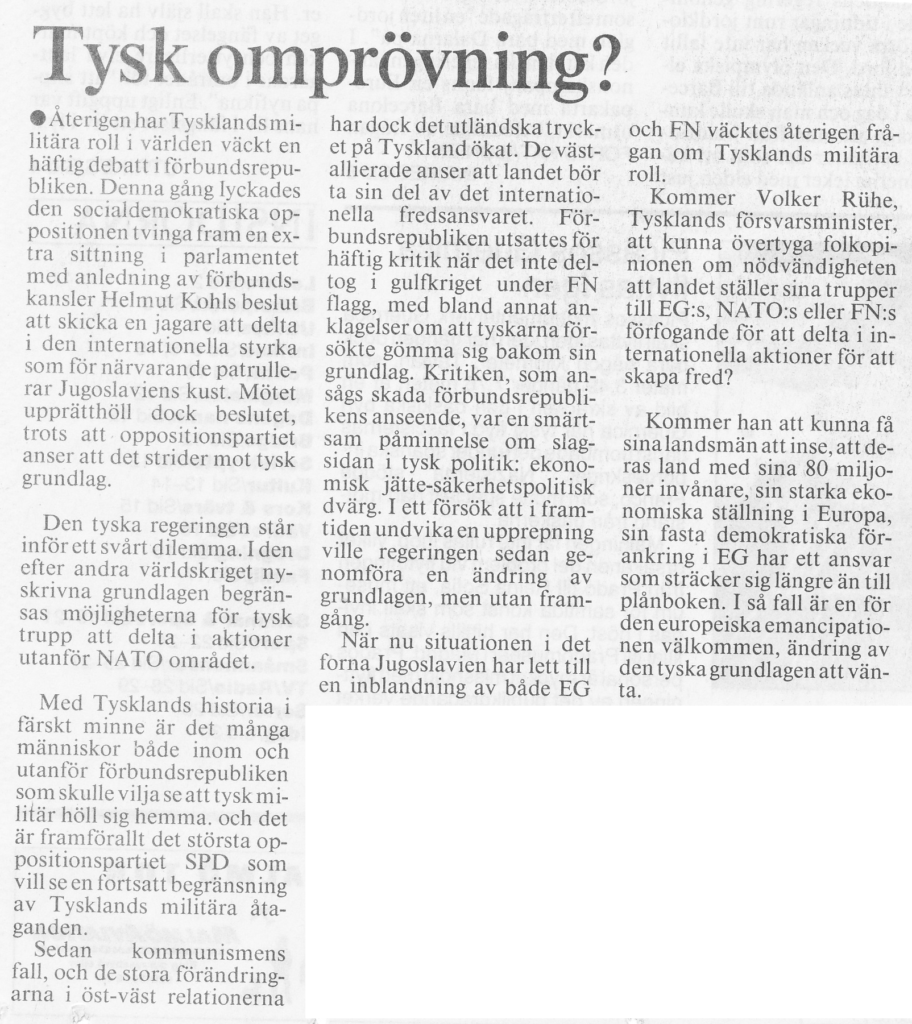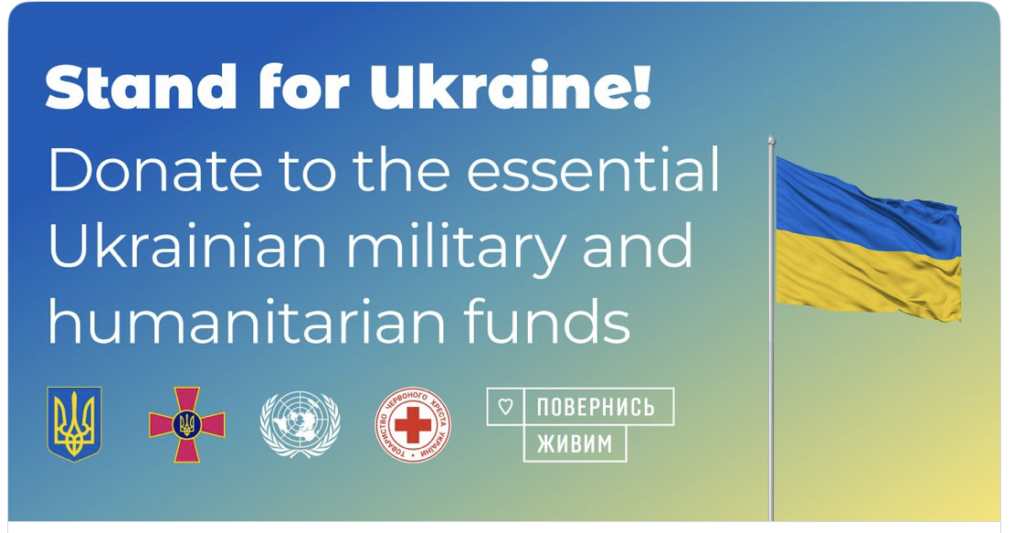Below is an editorial (with translation) that I wrote in 1992 whilst working as a summer stand-in for Svenska Dagbladet.


German Review?
Once again Germany’s global military role has raised serious questions in the Federal Republic. This time the SPD opposition was able to extract an extra session in parliament in view of federal chancellor Kohl’s decision to send a destroyer to participate in the international task force presently patrolling the Yugoslav coast. Parliament however upheld the decision despite the opposition claiming it violated German Basic Law. The German government faces a serious dilemma. After the second world war a re-written German constitution limits the possibilities for German armed forces in engaging in activities outside of NATO territory. Bearing in mind Germany’s recent history many people both within as well as outside the Federal Republic would like to see German military stay at home and especially the largest party in opposition, SPD would like to see continued restrictions on Germany’s military commitments. Although, since the fall of communism and major changes in East-West relations, international pressure on Germany has been on the increase. Western allies believe that the country should do its share of international peace-keeping. The Federal Republic was subject to intense criticism when it didn’t take part in the Gulf war under a UN flag, with one of the accusations being that Germany was hiding behind its constitution. This criticism, which was regarded as damaging for the reputation of the Federal Republic, was a painful reminder of the unbalanced nature of German politics: economic giant – security policy dwarf. In an attempt to avoid a future repeat the government sought to change the constitution, however without success. With the situation in former Yugoslavia having led to both the EG and the UN becoming involved, the question of Germany’s military role has once again arisen. Will Volker Rühe, Germany’s minister of defence, be able to convince popular opinion of the necessity in allowing the country to place its troops at the disposal of the EG, NATO or the UN for international engagement to promote peace. Will he be able to make his fellow Germans realize that their country of 80 million inhabitants with its strong economy and stable democratic foundation within the EG, has a responsibility that stretches further than opening a wallet. In that case a, for european emancipation welcoming, change in Germany’s constitution is to be expected. 24th July 1992
Much has happened since then and although German Basic Law remains unammended with regard to the use of German armed forces, in 1994 the constitutional court ruled that the constitutional text did allow German military participation both in NATO and in UN peacekeeping missions thereby shedding the country of its self imposed ”never again” military straight-jacket, a reaction to Germany’s role in the horrors of the second world war.
The same could be said of Sweden joining NATO thus abandoning its neutral stance lasting over 200 hundred years and including two world wars. From beginning to end the political process in achieving that goal was uncommonly short and fraught with less anxiety than might have been imagined. To be fair the invasion of Ukraine and Putin’s nuclear threats served well as a political catalyser.
Both Germany and Sweden have freed themselves from untenable international policies, policies that can at best be seen as an embarrassing ”don’t call us, we’ll call you” and at worst as counter-intentional suicide.
Europe has woken up to the true nature of Putin’s Russia and its cherry-picking attitude to the rules of war and international law and is acting accordingly by supporting Ukraine. Unfortunately it would seem that Europe has not yet woken up to the fact that a politically unstable USA and seeing China as a greater threat than Russia, may end up implementing that very same ”don’t call us, we’ll call you” strategy in relation to both NATO and the EU.
European unity has come a long way since the early days of Robert Schuman’s coal and steel community project. The EU is now a household name with a majority of Europeans aware of what is at stake, brutally exemplified by the UK’s Brexit hangover.
In light of the aforementioned the next policy step, exemplified by the about turn attitude change of both Germany and Sweden, should be for Europe to free itself of its transatlantic military dependence. The argument that this is unachievable has its flaws considering Europe’s economic clout in contrast to Russia. More so the debate should be about survival. The survival of Europe and our free and democratic life-style, dependent on no other and guaranteed by our own ability to defend ourselves.
